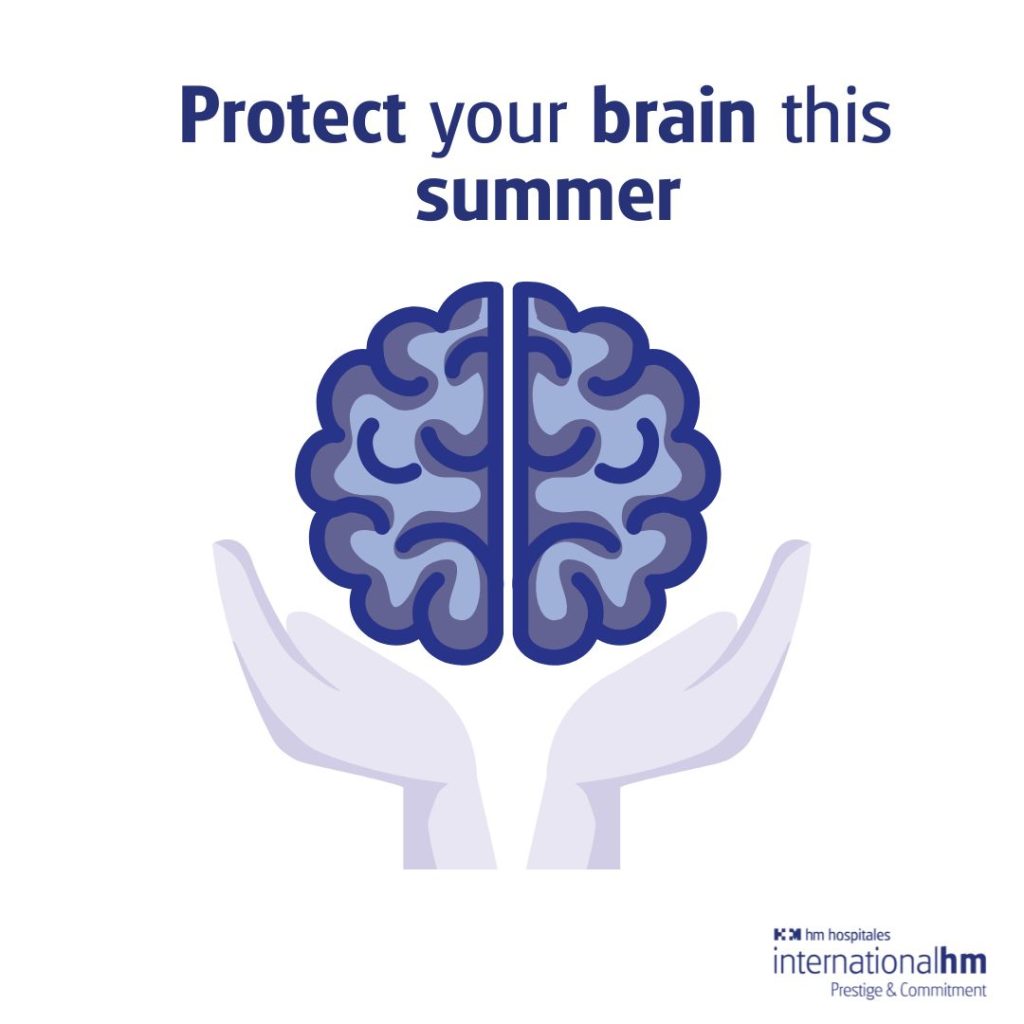Most people associate summer and holidays with greater tranquillity, calm and happiness — and it’s true that sunlight positively impacts our health. But when temperatures rise and the thermometer exceeds 38 degrees, the situation can change. Our brain is affected, and both cognitive function and emotional regulation are altered, resulting in changes in memory, mood and behaviour. When this occurs, special attention should be paid to individuals with pre-existing neurological conditions, as episodes of confusion, disorientation and agitation may increase.
There is extensive information on the benefits of sunlight on our bodies. We know that adequate exposure to ultraviolet rays helps synthesise vitamin D, which is essential for calcium absorption and for maintaining muscle, nerve and immune function. Sunlight also triggers serotonin production in the brain, stimulating the central nervous system and improving our mood, making us feel happier and more relaxed.
However, this situation can radically change when temperatures soar and reach or exceed 38 degrees. In this case, heat affects the hypothalamus — the region of the brain that acts as a vital control centre, regulating essential bodily functions such as temperature, hunger, thirst and sleep, as well as influencing emotions and behaviour. Through breathing, sweating and circulation, the body maintains a stable temperature of 36–37 degrees. But when it has to work harder due to high external temperatures, it becomes overwhelmed and destabilised, potentially causing changes in memory, mood and behaviour, as well as in sleep and appetite.
Dr María García Galant, Head of the Neuropsychology Department at HM Nou Delfos Hospital, explains that “when this happens, the hypothalamus concentrates all its energy on keeping the body cool and, if necessary, draws resources from the frontal lobe, where cognitive flexibility, attention, working memory and reasoning are located, meaning that general cognitive function also suffers. Another affected area is the limbic system, where our emotions are processed. That’s why extreme heat can cause restlessness, apathy, irritability and even aggression. Additionally, overstimulation of the hypothalamus can interfere with sleep and make it harder to rest properly.”
Appetite is also closely linked to heat, as the body enters energy-saving mode and requires less food to function. On the other hand, the need to drink fluids increases to maintain hydration.
People with neurological conditions
The effects of high temperatures on the human brain are even more evident in individuals with pre-existing neurological conditions, as episodes of confusion, disorientation and agitation increase — especially in patients diagnosed with dementia, epilepsy or acquired brain injury.
Dr María García explains that “extreme heat, dehydration and the routine changes typical of summer — such as travel, interruption of therapies or changes to the usual environment — can trigger neurological or behavioural symptoms, including acute confusional syndrome. Additionally, certain medications, such as psychotropics or anticholinergics, can increase vulnerability to heatstroke with cognitive, behavioural or neurological manifestations.”
In this context, the neuropsychology specialists at HM Nou Delfos recommend maintaining or adapting daily routines as much as possible, ensuring proper hydration and avoiding sun exposure during peak hours. They also emphasise the importance of adapting cognitive stimulation activities so they continue throughout the summer, even in a more flexible format.

